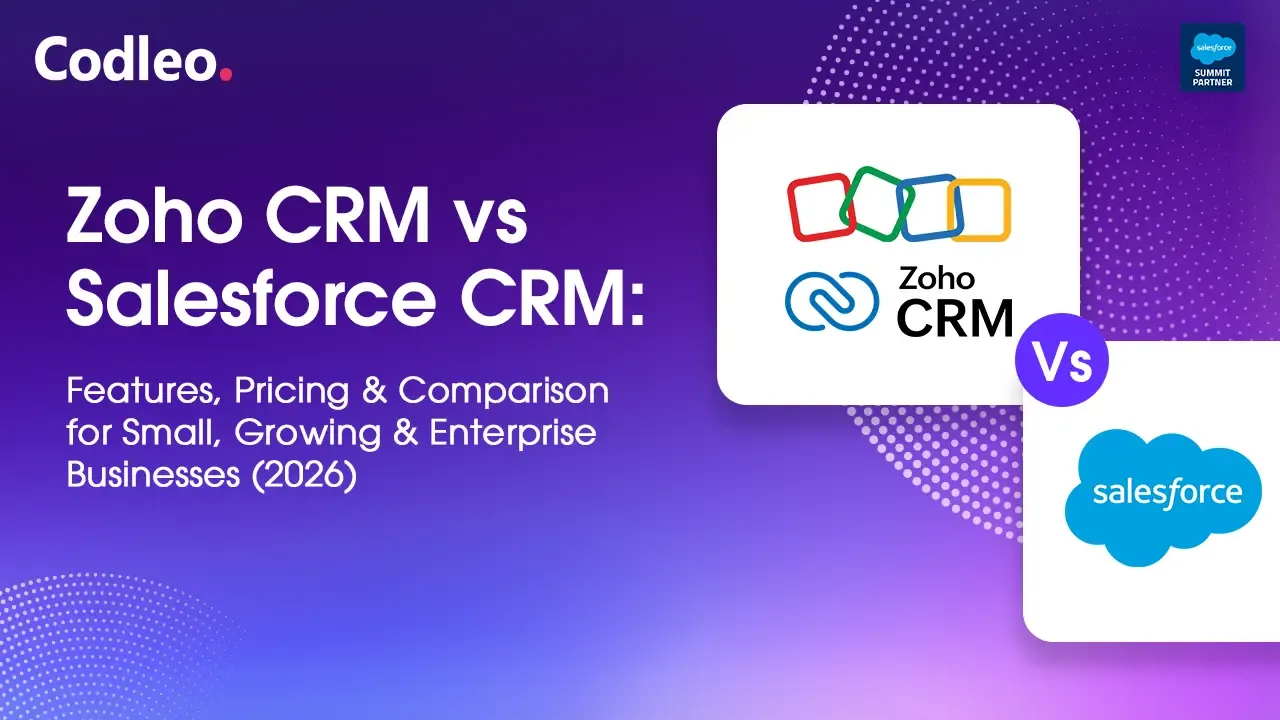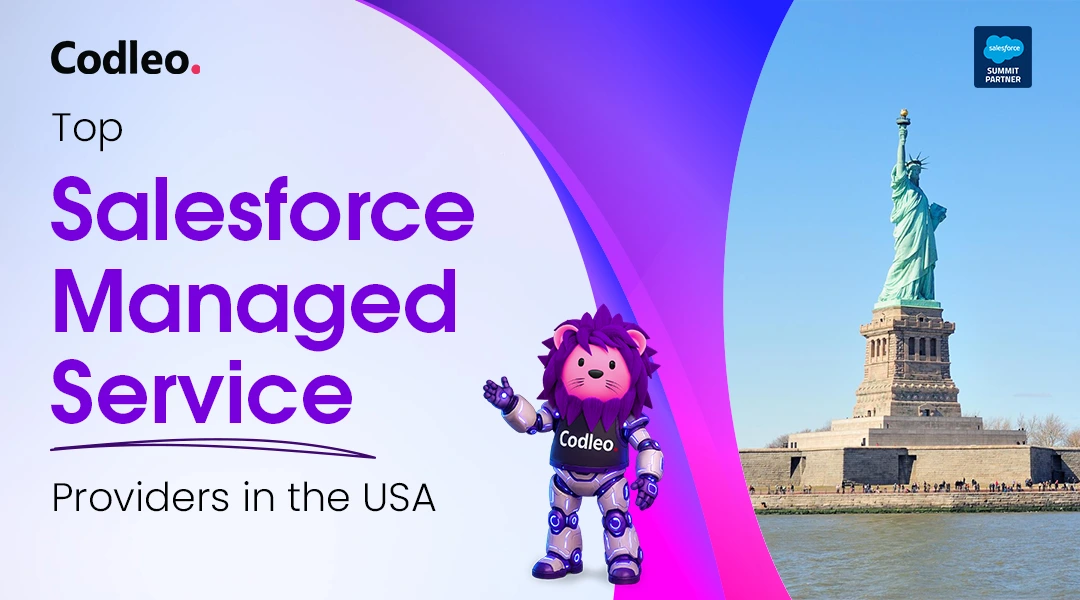Publish date:
Quick-Read: Discover why DevOps is crucial for SaaS applications in this comprehensive guide. Learn how DevOps practices can accelerate app development, strengthen security, and enhance scalability. Explore real-world success stories, essential tools, current trends, and more. Finally, see how Codleo can give your SaaS projects a competitive edge by integrating DevOps.
DevOps acts as the driving force behind leading digital services today. By uniting development and operations teams, this approach ensures the delivery of efficient, cloud-based software solutions that are user-friendly.
But DevOps isn’t just about speeding up development; it revolutionizes the entire lifecycle of SaaS applications—from initial concept through ongoing optimization in real-world use.
With expert DevOps services tailored for SaaS environments, businesses can leverage continuous integration and delivery pipelines to swiftly respond to market demands while upholding high-quality standards, giving them a competitive edge in a crowded market.
Let’s delve into how dedicated DevOps strategies can transform the launch and management of innovative SaaS applications with both speed and precision.
DevOps for SaaS Applications: Meaning and Importance
DevOps for SaaS applications involves applying DevOps principles—such as collaboration, automation, and CI/CD—to cloud-based software services. This practice enables businesses to develop and manage online applications through automated workflows.
The importance of DevOps in SaaS applications cannot be overstated:
-
Faster Deployment: Integrating DevOps into software development helps speed up the process, allowing SaaS application features to be developed, tested, and launched quickly, reducing time-to-market.
-
Improved Team Collaboration: DevOps bridges the gap between developers and operations teams within SaaS companies. This collaboration creates an environment where teams work towards shared goals rather than isolated tasks.
-
Increased Service Stability: DevOps CI/CD services automate code updates and testing, allowing teams to detect potential issues early. This rapid response capability ensures consistent service reliability for users.
-
Effortless Scalability: Managing infrastructure as code, a key DevOps practice, makes it easier to scale up or down according to user demand without sacrificing quality.
For SaaS providers aiming to stay competitive, leveraging well-designed CI/CD pipelines is essential—not only for operational efficiency but also for maintaining high customer satisfaction through reliable, high-performing applications.
Best Practices to Follow When Implementing DevOps in SaaS Applications
To create successful SaaS applications, it’s essential to follow these best practices when implementing DevOps:
1. Encourage a Collaborative Culture
Collaboration is key in DevOps, uniting developers, operations, and QA teams. For DevOps to be effective, everyone needs to take responsibility for both coding and operations, working together towards common goals.
2. Focus on Customer Satisfaction
Customer satisfaction should always be a top priority. In the DevOps lifecycle, streamlined release processes allow for quick updates, ensuring clients are happy with the continuous improvements made by the same team handling both coding and deployment.
3. Combine Agile and Scrum Principles
By integrating Agile’s iterative approach with DevOps, you can speed up the deployment of SaaS applications while incorporating user feedback for ongoing improvements. This ensures that resources are used effectively, focusing on features that truly matter.
4. Adopt Test-Driven Development (TDD)
In Test-Driven Development, automated tests are created before the code itself. This approach minimizes errors in SaaS application releases and enables faster, more confident rollouts.
5. Opt for Microservices Architecture
For SaaS applications that need to be scalable and reliable, microservices architecture is the way to go. It supports growth with minimal downtime, making it ideal for services that require robustness, like those catering to a large, diverse customer base.
6. Implement Continuous Performance Monitoring
Monitoring performance metrics, such as lead time or mean time to recovery, helps validate the efficiency of your DevOps practices. This proactive approach ensures high service quality while aligning with business goals like cost-effectiveness.
Seven Ways DevOps Benefits SaaS-Driven Applications
Implementing DevOps in SaaS applications brings a host of benefits that drive operational excellence and boost customer satisfaction:
-
Faster Product Evolution: DevOps enables rapid iteration and continuous delivery, allowing SaaS applications to keep pace with customer needs and market trends.
-
Quick Issue Resolution: Problems are identified and fixed swiftly, minimizing service disruptions and building user trust.
-
Smooth Technology Integration: DevOps ensures that new technologies are seamlessly integrated, keeping SaaS applications innovative and competitive.
-
Enhanced Stability: Automating tasks reduces the chance of human error, creating a more stable and reliable environment.
-
Simplified Project Management: DevOps streamlines processes, making project management more straightforward and less complex.
-
Improved Team Collaboration: Cross-functional teams work together effectively, leading to better outcomes through shared insights and collaboration.
-
Flexible Scalability: Infrastructure can be easily scaled up or down to meet demand without compromising performance or stability.
DevOps is essential for SaaS applications aiming to stay agile, dependable, and easily scalable.
What Role Does DevOps Play in SaaS Applications Development?
DevOps is crucial in SaaS application development, offering several strategic benefits:
-
Streamlined Development: DevOps merges SaaS application development and operations, simplifying the software creation process and speeding up the journey from concept to deployment.
-
Continuous Integration/Delivery (CI/CD): By automating the build-test-deploy cycle through CI/CD pipelines, DevOps ensures that updates are rolled out continuously without interrupting service availability.
-
Reliability and Stability: DevOps enhances the stability of SaaS applications by conducting regular testing and monitoring, allowing teams to catch and fix issues before they impact users.
-
Scalability and Performance Management: With practices like infrastructure as code (IaC), DevOps allows for quick scaling based on user demand while ensuring that performance levels remain optimal.
DevOps for SaaS Applications: Key Tips to Perfect Your Strategy
Implementing DevOps for SaaS applications is more than just adopting new tools or tweaking workflows; it’s about fostering a mindset that unites developers, operators, and QA teams to deliver high-quality products faster. Here are some expert tips to excel in your DevOps strategy for SaaS:
Choosing the Right Tools:
Select DevOps tools that align with your business objectives and work well together. From source code management with Git to CI/CD pipelines using Jenkins or CircleCI, container orchestration with Kubernetes, infrastructure automation via Terraform, and configuration management through Ansible – each tool should enhance your workflow.
Integrating with the Cloud Seamlessly:
Leveraging cloud services is vital for a strong DevOps practice. Integrate IaaS and PaaS solutions from providers like AWS or Azure to create scalable environments where resources adjust dynamically based on demand, all while keeping costs in check.
Focusing on Security at Every Step:
Make security an integral part of your SaaS application development with DevSecOps. This includes automated vulnerability scans, regular code reviews to ensure security best practices, secure coding training for developers, and adherence to industry standards to maintain compliance.
Building a Collaborative Culture:
Success in DevOps goes beyond technical know-how; it requires fostering a culture where cross-disciplinary teams communicate effectively with shared goals, not isolated KPIs. Encouraging continuous learning within the team drives both innovation and resilience against challenges.
Maximizing Automation:
Identify areas in your pipeline – from code testing to deployment – that can benefit from automation. This reduces the risk of human error and frees up developer time for creative and critical tasks that automation can’t handle.
Notable Examples of Successful DevOps in SaaS Applications
In the dynamic world of SaaS application development, many companies are leveraging DevOps to stay ahead and drive innovation. Here are some standout examples:
Netflix
Netflix leads the way in using DevOps to enhance its streaming service. By employing continuous integration and delivery (CI/CD), Netflix deploys thousands of code changes daily. Their ability to introduce new features while maintaining reliability is a testament to their effective DevOps approach.
Amazon Web Services (AWS)
AWS offers a comprehensive range of DevOps services, from automated build processes to configuration management. These tools help customers implement DevOps practices efficiently, empowering them to streamline their operations.
Etsy
Etsy has integrated DevOps into its operations to ensure smooth and rapid updates. Their approach includes advanced monitoring and automation, which supports quick and reliable feature rollouts.
GitHub
As a key tool for many developers, GitHub relies on rigorous automated testing and deployment processes. This ensures that updates are rolled out reliably across their extensive infrastructure.
Slack
Slack effectively uses microservices and advanced DevOps CI/CD pipelines to support its growth. By breaking down its technology into manageable services and automating updates and deployments, Slack can introduce new features smoothly, maintaining a positive user experience for its global audience.
The Future of DevOps for SaaS Applications: Why It’s Essential
The future of DevOps in the SaaS world is not just promising but essential. Here’s why integrating DevOps into SaaS applications is so crucial:
-
Continuous Innovation: DevOps allows for the ongoing rollout of new features, keeping you competitive and responsive to the ever-changing needs of SaaS users. As the SaaS landscape evolves rapidly, DevOps helps you stay ahead by continuously adapting to user demands.
-
Improved Operational Efficiency: With the rise of AI and Machine Learning, DevOps will enable teams to anticipate and address potential issues before they occur. This will enhance operational efficiency and streamline workflows even further.
-
Enhanced Security (DevSecOps): As cyber threats become more sophisticated, integrating security into every phase of SaaS application development is vital. DevSecOps, a proactive approach to security, ensures that vulnerabilities are automatically detected and addressed throughout the development process.
-
Adoption of Serverless Technologies: The shift towards serverless computing aligns with DevOps principles by allowing teams to focus on building features rather than managing infrastructure. This approach supports quicker market entry without compromising on quality or performance.
-
Advanced Infrastructure Management: Improvements in Infrastructure as Code (IaC) mean that even complex systems can be managed efficiently as code. This supports scalability, which is essential for growing SaaS platforms.
-
Rise of Microservices Architecture: Microservices will continue to gain popularity due to their ability to facilitate independent updates and reduce downtime. This architecture is ideal for the dynamic environments typical of SaaS applications.
Codleo: Your DevOps Partner for SaaS Projects
If you’re embarking on a SaaS application project and need expert DevOps support, look no further than Codleo. As a top SaaS application development company, we provide solutions that are fast, reliable, secure, and ready to adapt to the ever-evolving tech landscape.
When you partner with us, you’re working with a team that integrates advanced DevOps practices into your SaaS applications to enhance efficiency and performance. With Codleo managing your DevOps needs, you can expect high-quality results delivered with precision.
For a seamless experience that turns your vision into reality through careful execution and ongoing improvements in the cloud-based service realm, get in touch with us. Let’s work together to achieve outstanding success in your SaaS projects with Codleo as your trusted Salesforce partner.















